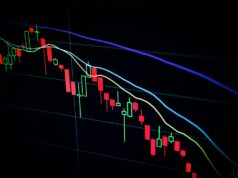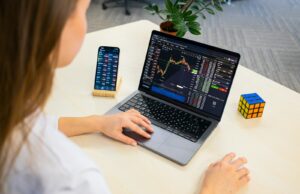In the ever-evolving landscape of finance, where the whispers of innovation dance through the air like autumn leaves in a gentle breeze, the question of trading platforms emerges with a clarity that demands attention. Decentralized exchanges and centralized exchanges stand as two distinct pillars in this realm, each offering unique attributes that cater to different needs. The essence of making a choice between them lies not just in their functionalities but in understanding what suits you best–your goals, your level of experience, and your vision for the future of your financial journey.
Centralized exchanges present themselves as bustling marketplaces, akin to the vibrant towns of yesteryear, where traders gather under one roof, exchanging ideas and assets with ease. They promise convenience and user-friendly interfaces, guiding newcomers through the labyrinth of digital assets with a reassuring hand. However, this ease often comes at a cost–a relinquishment of control over one’s funds and personal data. In contrast, decentralized exchanges emerge from the shadows with a spirit of autonomy, offering a platform where users retain ownership and authority over their assets. They embody the very principles of independence and security that underpin the world of cryptocurrency.
As we embark on this exploration of trading platforms, we must ask ourselves what truly fits our needs. Is it the comfort of familiar structures found in centralized exchanges or the liberating ethos that decentralized platforms offer? Comparing these two worlds requires a careful examination of their intricacies–the speed of transactions, the variety of available tokens, and the inherent risks involved. Each choice carries its own weight, and in understanding which exchange aligns with your aspirations, you will draw closer to realizing your financial dreams.
The beauty lies not only in choosing between centralized or decentralized exchanges but in appreciating how each can serve as a tool tailored to your personal journey. As we delve deeper into this discussion, let us illuminate the paths laid before us and discern which platform holds the key to unlocking your potential in this remarkable digital frontier.
Decentralized vs. Centralized Exchanges: Which One Fits Your Needs?
In the world of digital currencies, a profound question lingers in the minds of traders and investors alike: centralized or decentralized exchanges? Each platform offers a distinct experience, shaping the way you engage with your assets. As you navigate this intricate landscape, understanding the nuances between these two types of trading platforms is essential for making an informed choice that aligns with your needs. It is here, amidst the complexities of blockchain technology and financial innovation, that the heart of trading beats strongest.
Centralized exchanges present themselves as towering beacons of convenience and accessibility. They promise you an array of features, from intuitive interfaces to robust liquidity. Yet, this ease often comes at a price–trust in a third party. When you trade on these platforms, you place your faith in their security measures and governance structures. For many, this is a worthy trade-off for the immediacy and user-friendly nature of centralized trading environments. However, one must ponder what happens when that trust is broken; the specter of hacks and regulatory scrutiny looms large over these exchanges.
On the other hand, decentralized exchanges beckon with the allure of autonomy and privacy. They empower you to retain control over your assets, free from the constraints imposed by a central authority. Here lies a unique opportunity for you to engage in trading without the need to disclose personal information. Yet, this freedom is not without its challenges. The learning curve can be steep, and issues such as lower liquidity may hinder your trading experience. Thus, as you weigh your options, consider what suits your trading style and risk tolerance best.
When comparing these two paradigms–centralized vs. decentralized–you must reflect on your own priorities. Are you seeking simplicity and speed, or do you value sovereignty and security above all else? The right choice for you may depend on whether you are a seasoned trader familiar with the intricacies of blockchain technology or a newcomer eager to dip your toes into the vast ocean of cryptocurrency markets. Each path offers its rewards and pitfalls; hence, discernment becomes paramount.
Ultimately, making the right choice between centralized and decentralized exchanges requires introspection about your needs and goals as a trader. Take time to contemplate what fits your lifestyle and aspirations best. While both platforms have their merits, understanding their differences will illuminate the way forward in your cryptocurrency journey. In this unfolding narrative of digital finance, may your choices lead you to a prosperous future where your investments flourish like crops under a nurturing sun.
Understanding Centralized Exchanges
In the bustling world of cryptocurrencies, centralized exchanges stand as the towering giants, offering a familiar landscape for traders navigating the vast sea of digital assets. These platforms, with their streamlined interfaces and user-friendly features, cater to those whose needs lie in convenience and speed. For many, the right choice is clear: the allure of instant transactions and robust customer support makes centralized exchanges an appealing option. However, amidst this comfort lies a deeper question–what fits your trading style best?
As we delve into the nuances of decentralized vs. centralized trading platforms, it becomes essential to weigh the benefits each offers. Centralized exchanges provide a level of liquidity that can be hard to match, ensuring that trades are executed promptly and efficiently. Yet, this ease comes at a cost; users must place their trust in these platforms’ security measures and regulatory compliance. For those who prioritize accessibility above all, centralized exchanges might seem like the ideal solution. But what about those who yearn for autonomy and control over their assets?
Comparing decentralized exchanges with their centralized counterparts reveals a stark contrast in philosophy and function. Decentralized platforms empower users by eliminating intermediaries, allowing for peer-to-peer transactions that resonate with the core principles of cryptocurrency. This model speaks to those seeking privacy and independence from central authorities. However, this freedom may come with its own set of challenges–less intuitive interfaces and potential liquidity issues can make trading a more complex endeavor. Therefore, understanding which platform suits you best requires introspection about your trading needs.
Ultimately, making the right choice between centralized or decentralized exchanges is a personal journey–one that reflects your values as much as your financial goals. It’s about assessing what you prioritize: security and support or autonomy and privacy. Whether you lean towards the structured environment of centralized exchanges or the liberating nature of decentralized platforms, each decision paves a unique path through the intricate world of digital currency trading. As you contemplate your next steps, remember that the right exchange is not merely about mechanics; it’s about finding a platform that resonates with your individual ethos in this ever-evolving landscape.
Decentralized vs. Centralized Exchanges: Which is Right for You?
In the realm of digital finance, where the sun rises and sets on markets that dance to the rhythm of supply and demand, the choice between centralized and decentralized exchanges looms large. Each platform offers its own allure, yet what truly suits your needs? Centralized exchanges, with their polished interfaces and user-friendly designs, beckon with promises of efficiency and speed. They serve as bustling marketplaces, where transactions flow like a gentle stream, yet they carry within them a weighty concern–the vulnerability of trust.
Decentralized exchanges, on the other hand, unfold like a sprawling landscape untouched by the hands of central authority. Here lies a treasure trove of benefits, inviting those who seek autonomy in their trading endeavors. These platforms allow for direct peer-to-peer transactions, stripping away middlemen and granting users full control over their assets. It’s a dance of freedom where the individual reigns supreme; no longer must one place faith in an intermediary. But is this independence the right fit for you?
When comparing these two worlds–centralized vs. decentralized–you may find yourself pondering which platform aligns best with your aspirations. If rapid trades and customer support are your guiding stars, centralized exchanges might feel like home. They are designed with the novice trader in mind, offering tutorials and assistance to navigate the waters of cryptocurrency. However, if you value privacy and security above all else, decentralized exchanges shine brightly in their commitment to safeguarding personal data from prying eyes.
The heart of the matter lies in understanding your own trading style and risk tolerance. Are you comfortable with relinquishing control for convenience? Or does the thought of entrusting your assets to a centralized entity send shivers down your spine? Each path carries its own set of advantages and drawbacks; discerning which suits you best requires introspection and careful consideration of your financial goals.
Furthermore, as we delve deeper into this comparison, it becomes clear that both exchanges cater to different segments of traders. While centralized platforms excel in liquidity and user experience, decentralized exchanges are increasingly innovating to enhance their own functionalities–adding features such as liquidity pools and yield farming opportunities that attract a more adventurous spirit. The question remains: what do you need from your trading platform? The answer will guide you toward the right choice.
Ultimately, whether you lean towards centralized or decentralized exchanges is not merely about preference but about aligning your trading practices with your values. In this evolving landscape of financial technology, understanding what fits your needs will illuminate the path forward. Take your time in exploring both realms; each offers unique gifts waiting to be unwrapped. In this journey through choices and possibilities, may you discover the platform that resonates with your vision for financial freedom.
Conclusion: Choosing the Right Exchange Type
In the vast landscape of trading, where the sun rises and sets on both centralized and decentralized exchanges, there lies a pivotal choice that every trader must confront. Each platform presents its own tapestry of advantages and challenges, weaving a narrative that speaks to the heart of your trading needs. Whether you find solace in the familiar embrace of centralized exchanges or are drawn to the liberating spirit of decentralized platforms, the decision rests upon what truly suits you.
As you stand at this crossroads, consider not just the mechanics of trading but the essence of your aspirations. What are your priorities? Security, control, ease of use? In comparing these two distinct avenues, reflect on how each fits into your vision of success. The right choice is more than a mere transaction; it is about aligning with a platform that resonates with your goals and values.
- Centralized Exchanges: They offer user-friendly interfaces and robust liquidity. However, they come with inherent risks related to security and control over your assets.
- Decentralized Exchanges: These platforms provide greater autonomy and privacy but may lack the convenience and speed that some traders desire.
Ultimately, making this choice is not just about what is best in terms of features or fees. It’s about understanding which exchange aligns with your personal trading ethos. As you navigate this decision, may you find clarity in what fits your needs and leads you toward fulfillment in your trading journey.














